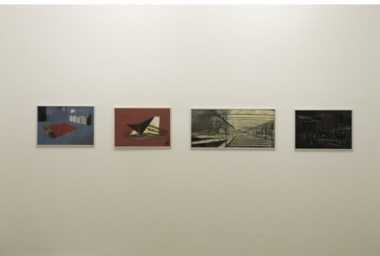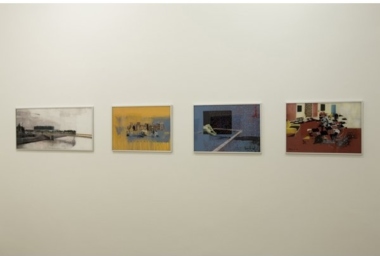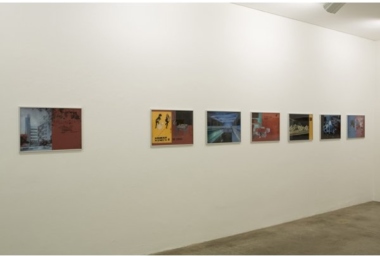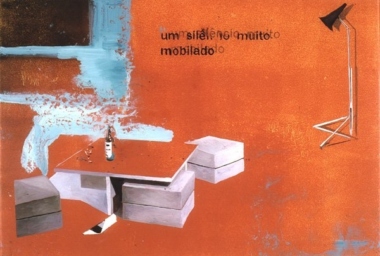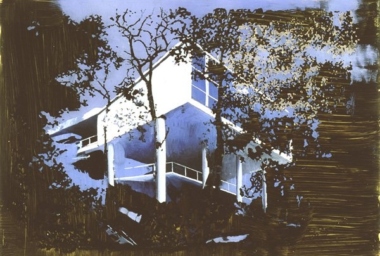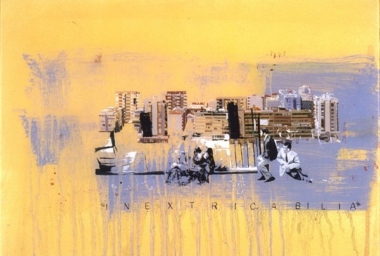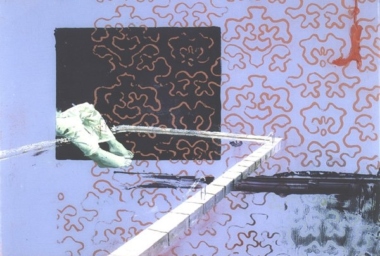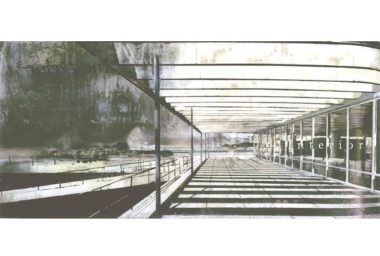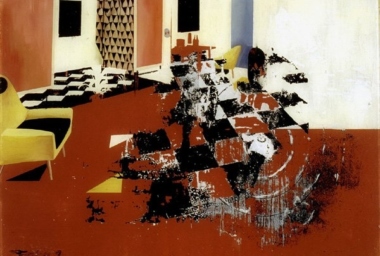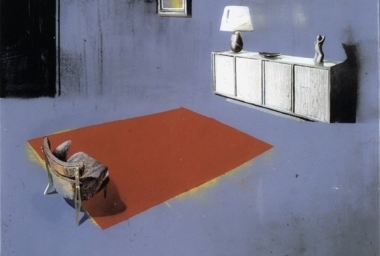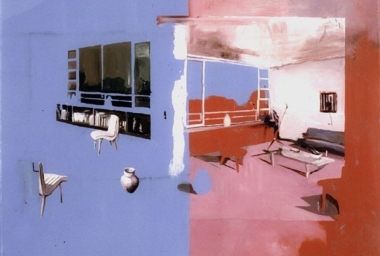Gil Heitor Cortesão
Modelo para Armar
Apr 14 – May 12, 2007
Galeria Fortes Vilaça
Modelo para Armar is the Portuguese painter Gil Heitor Cortesão’s second solo exhibition at Galeria Fortes Vilaça. The fifteen paintings that constitute the show form a “kit, a game for possible constructions”, which allows for different methods of assembly. The paintings – all of the same height – are hung alongside each other at eye level, forming a continuous line that takes up three of the walls in the galeria 2.
All the works are in oil, but Cortesão subverts the idea of oil on a support by using the reverse of the support as the surface to be painted on – in this case sheets of transparent plexiglass. As the painted image is not on the surface but behind it, the works have a smooth finish that hides the texture of the paint and the traces of manual production, so hindering the onlooker from direct contact with the materiality of the painting.
As a creative starting point, the artist appropriates ready-made photographic images and then alters them, putting them within a pictorial context. For Modelo para Armar, Cortesão chose photographs of pre – 1967 buildings, which have elements of modern architecture like the building for the Museu de Arte Moderna do Rio de Janeiro [Rio de Janeiro Museum of Modern Art] designed by Affonso Reily and buildings by Rino Levi and Eduardo Corona in São Paulo. Starting from structures defined by these images, the artist undoes their outlines, thus creating intimate, imaginary and dysfunctional spaces.
In addition to architectonic references, Cortesão embraces literary influences. The title of the show directly alludes to Júlio Cortazar’s 62 Modelo para Armar [62: A Model Kit]. For Cortesão, the book deals with exactly the same things as his painting, “the constant interpenetration of the world of dreams into that of vigil and the awareness of the impossibility of drawing a line, a limit, a clear distinction between the universe of dreams, real memory and invented memories. It is impossible to traverse the streets of your real city without a shadow, a recollection, or an appeal coming from other spaces […] and other times insinuating itself at every corner.”
